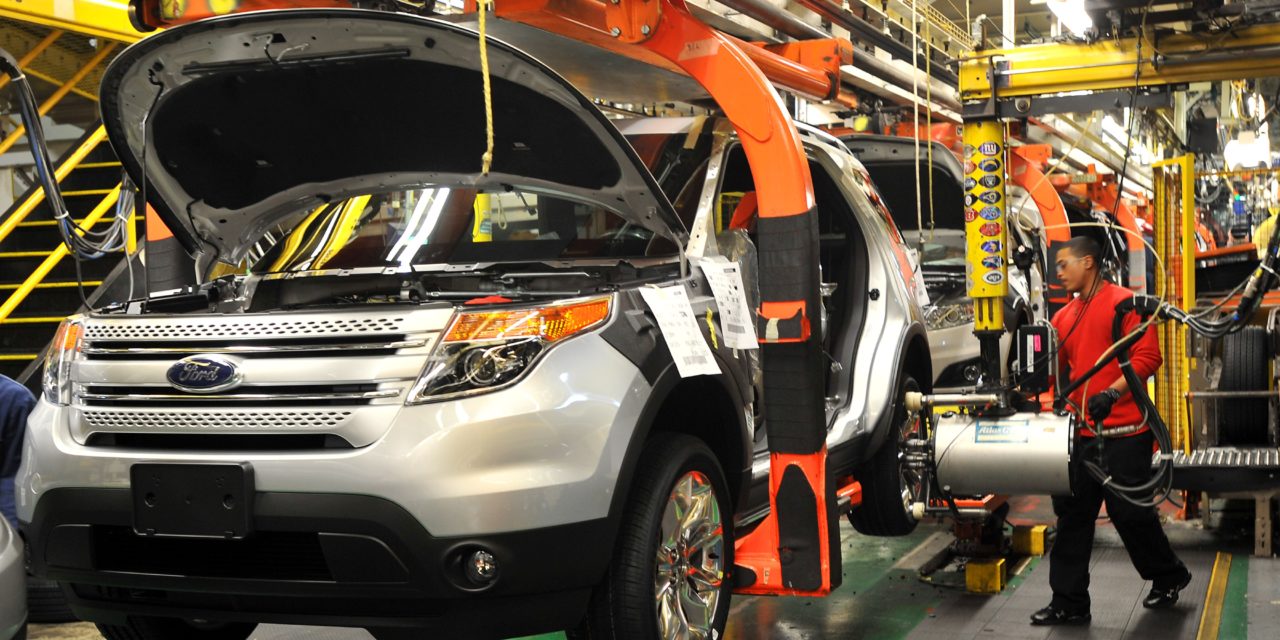As business groups and Senate Republicans warn that President Trump’s proposed tariffs on products from Mexico could spell disaster for the U.S. economy, a study of cross-border commerce concluded that Michigan would be the second-hardest hit state under the president’s retaliation plan.
The U.S. Chamber of Commerce warns that the Trump tariffs, starting at 5 percent on Mexican imports as early as next week and rising to 25 percent by October, will cost Michigan companies as much as $14 billion, including thousands of auto industry jobs lost. One estimate indicates that the tariffs could cost General Motors $6.3 billion, Ford $3.3 billion and Fiat Chrysler $4.8 billion.
Neil Bradley, executive vice president of the U.S. Chamber, said the state-by-state data illustrates the heavy price American consumers would have to pay under Trump’s tariffs.
“Imposing tariffs on goods from Mexico is exactly the wrong move,” Bradley said. “These tariffs will be paid by American families and businesses without doing a thing to solve the very real problems at the border.”
In fact, the chamber has threatened to sue the Trump administration to block its plan for a hardball approach toward trade policies with America’s Mexican neighbor.
Trump’s goal is to pressure the Mexican government to take a more aggressive stance in blocking northbound Central American refugees from seeking asylum in the U.S.
Meanwhile, the Detroit-based domestic auto industry, after suffering the year-long consequences of dealing with Trump’s 25 percent tariff on imports of steel and aluminum products, faces a new tariff regimen that could slam GM, Ford and FCA.
If this new round of escalating tariffs hit 25 percent, that might cut U.S. auto production by as much as 3 million vehicles a year, an 18 percent drop from current levels, according to Deutsche Bank analysts.
If that happened, auto industry observers warn, it could be the greatest blow to American automakers since the Great Recession of 2008-10 sent the industry hurtling toward near collapse 10 years ago.
As for the chamber’s ranking of states hardest hit by the Trump tariffs, based on U.S. Department of Commerce statistics Michigan would rank second only behind the border state of Texas. California, Illinois and Ohio complete the list of top five states.
The initial concern among the Detroit auto companies is the disruptions that would be caused by Mexican-made auto parts facing a tariff, a tax. Mexico is by far the largest foreign source of parts used by the industry. About 16 percent of all auto parts relied upon by U.S. assembly plants, carrying an annual price tag of nearly $60 billion, come from Mexico.
But for GM, the damage that could be done to sales of their pickup trucks and SUVs, the bread and butter of their corporate profit-making strategy, is earth shaking.
GM imports 29 percent of its auto components from south of the border but it also builds in Mexico its new Chevrolet Blazer SUV, many of its Chevrolet Silverado and GMC Sierra Crew Cab pickups, the Chevrolet Equinox, Chevrolet Trax and GMC Terrain SUVs.
Overall, about 2.7 million finished cars and trucks were imported into the U.S. from Mexico last year. That’s nearly a million more autos than came from Japan, the No. 2 source of auto imports.











